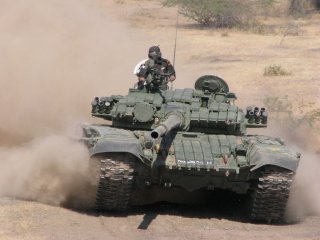Course Correcting Toward Diplomacy in the Ukraine Crisis
Washington must come to terms with its role in provoking and now prolonging the war.
Either way, the West isn’t winning the war. A decisive victory in Ukraine is neither realistic nor worth the dangers or costs to try to achieve it. Even if more Western support arrives, it won’t stop Russia from escalating in kind. It also won’t do much to roll back the tremendous coercive leverage it has already gained. In reality, Russia’s terms for peace will be difficult to defy in any eventual settlement.
Moreover, prolonging the fight furthers the carnage and could likely worsen Ukraine’s negotiating power rather than boost it. Indeed, Moscow’s aims are, in fact, expanding over secondary interests beyond its primary interest of neutrality. This expansion is not only driven to justify the costs expended in the war but also because of emerging security concerns produced as a result of the war.
For instance, since Ukraine’s possession of newfound military systems, Russia is likely inclined to create a buffer zone that reduces the coercive value of those weapons. “Now, [our] geography is different,” said Sergei Lavrov, Russia’s foreign minister in July, “It is not only the DNR and LNR,” referring to the provinces in the Donbas region, “it is also the Kherson region, the Zaporizhzhia region and a number of other territories.” This would not only harden Moscow’s bargaining power, but also sustain its coercive superiority vis-à-vis Kyiv by reducing the efficacy of the latter’s retaliatory capability. “If Western countries supply long-range weapons to Ukraine,” Lavrov warned, territorial interests “will move even further.”
Inevitably, the misguided U.S.-led approach will be exposed by the merits of a hard and inconvenient truth: Russia’s resolve will likely prevail over the thin veneer of Western unity. As Europe steadily finds itself having to absorb the blowback of a U.S.-driven policy, escalation may accelerate its defection to seek accommodation with Russia. Moreover, NATO’s deepening involvement will only intensify a threat that Russia has deemed existential. This fuels its resolve rather than abates it. As demonstrated by the rattling of its nuclear saber, the vital interests at stake for Russia gives its leadership far more political will than the West in accepting the burdens and perils of escalation.
To end the fighting, recent calls have suggested Ukraine make territorial concessions to Russia. But neither a bilateral deal nor redrawing borders alone will bring about a lasting peace. This is because Ukraine is entangled in a proxy war. Its casus belli cannot be simplified as a territorial tiff between neighbors. Although such disputes played a role in the crisis, the taproot of the instability remains NATO’s living commitment—issued in 2008 and reiterated in 2021—to bring Ukraine into the Western alliance.
As such, the West must be a party to negotiations and a signatory to any lasting settlement. Without a multilateral agreement over Ukraine’s strategic orientation, the war could settle into a ‘frozen’ or recurring conflict. Putin may be content with either scenario. If diplomacy with the West remains an intractable path to pacify its security concerns, Russia will continue to hold Ukraine hostage in the broader dispute with NATO, as it has with Georgia. Doing so preserves a backdoor mechanism to obstruct Ukraine’s admission into the alliance, indefinitely.
A negotiated settlement is in the best interest for all parties. However, diplomacy has long stalled behind the scenes and given the multiple layers of actors on the Western side of the ledger, the prerequisite conditions will be slow and stubborn. Indeed, despite their perilous position, Zelenskyy’s domestic and foreign backers are adamant to prolong the fighting until a final victory is achieved. But for diplomacy to gain traction sooner rather than later, the U.S. and Europe must pivot in unison to pressure and empower him to seek the compromise that is necessary with Putin, which also requires the West to formally relinquish its position to bring Ukraine into NATO.
Before all else, Washington must come to terms with its role in provoking and now prolonging the war. Unfortunately, the conventional narrative dampens that realization and delays the course correction.
This reckless obduracy from afar will only add to Ukraine’s wrecking.
Ramzy Mardini is an Associate at The Pearson Institute and a Ph.D. candidate in political science at the University of Chicago, where he studies the intersection of social networks and civil war dynamics, with a focus on the Islamic State.
Image: Flickr.

